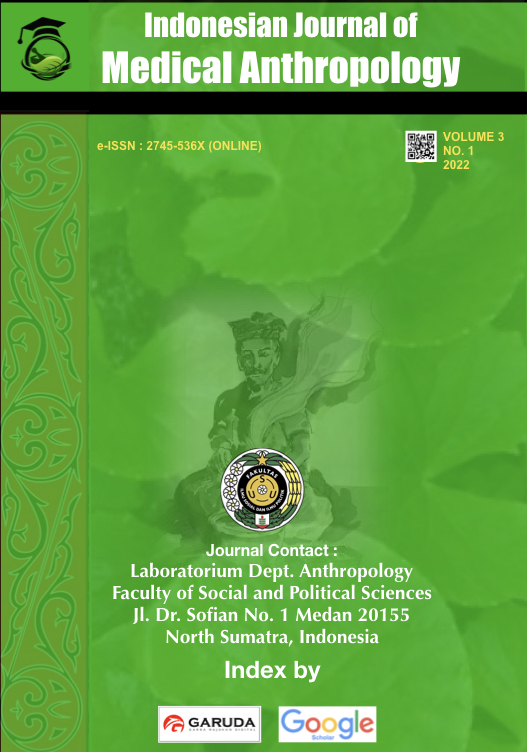Traditional Fracture Fracture Treatment Knowledge System (Case Study In Lubuk Alung District, West Sumatra)
DOI:
https://doi.org/10.32734/ijma.v3i2.9721Keywords:
Fractures, Medicine Knowledge, PatientsAbstract
This study entitled "Knowledge System of Traditional Fracture Treatment in Tapakis (Case Study in Lubuk Alung District, West Sumatra)" describes the knowledge of traditional fracture treatment among the Lubuk Alung community in treating and or curing their patients, as well as to find out the reasons why patients choose Tapakis traditional medicine instead of seeking treatment with modern medicine. The results of ethnographic research conducted by means of observation and in-depth interviews using interview guide interview guidelines for healers and several informants who became patients in the traditional treatment of Tapakis fractures. Patients come from a variety of backgrounds and ages. The result of this study is that the traditional treatment of Tapakis fractures is a medicinal knowledge passed down from generations from Mr. Sofyan's ancestors. Not everyone can learn the knowledge of The Treaded fracture treatment because the knowledge should not be told to others because the science of medicine is only passed on to people who are considered capable. Patients and prospective patients are aware of the practice of this treatment through word of mouth and the results of some patients who recovered completely during treatment to this place. People prefer to treat fractures to Tapakis because the price is much cheaper than going to modern medical treatment in general.
Downloads
Downloads
Published
How to Cite
Issue
Section
License
Copyright (c) 2022 Indonesian Journal of Medical Anthropology

This work is licensed under a Creative Commons Attribution-ShareAlike 4.0 International License.











